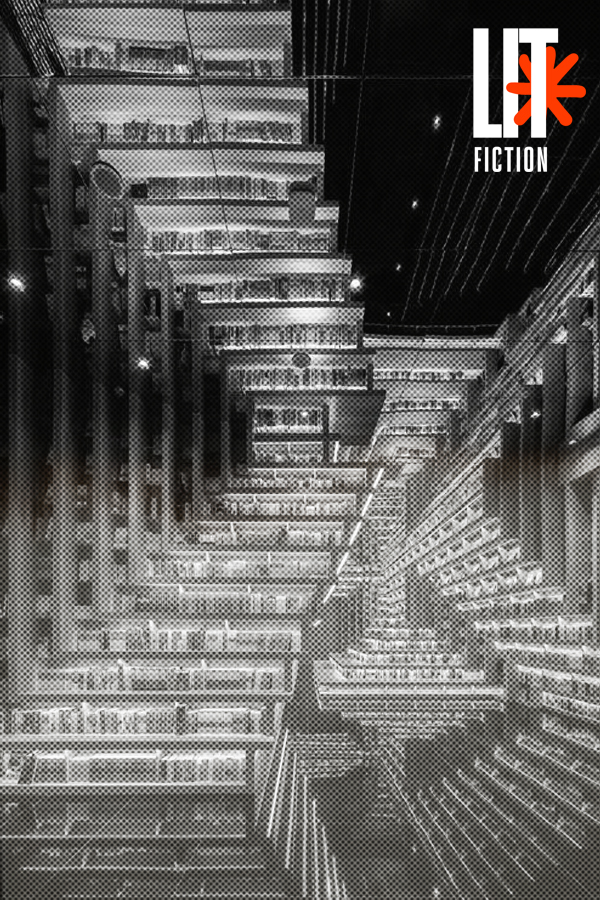This week, Joey, Colin, and Jennifer discuss “The Library of Babel,” by Jorge Luis Borges, first published in 1941. This story presents an infinite library composed of hexagonal rooms filled with books that contain every possible combination of letters. The inhabitants spend their lives searching for meaning in the books, but the randomness of the texts makes this search both fascinating and futile.
Our Thoughts
Colin provides a thorough introduction to Borges and his thematic interests. He reflects on how Borges explored ideas of infinity, reality, and metaphysics, with “The Library of Babel” serving as a perfect example of Borges’ ability to challenge readers’ perceptions of knowledge and meaning.
“What Borges does is create this mind-bending experience. He pushes you into a state where you think you’ve grasped the concept, and then he pulls it away again… There’s something here about the search for meaning that reflects the human experience in such a profound way.”
— Colin
Jennifer expresses her discomfort with the story’s lack of traditional narrative elements, such as character motivation and plot. She notes that while she admires Borges’ intellectual rigor, the story leaves her in a state of frustration rather than fulfillment.
“The more I read, the more frustrated I became. This story doesn’t offer the satisfaction of a resolution, which, for me, makes it so challenging. It’s all philosophy and metaphysics, and that’s not where I find joy in reading.”
— Jennifer
Joey highlights his newfound obsession with Borges, revealing that he purchased all of Borges’ works after reading “The Library of Babel.” He marvels at the scale of the universe Borges created and the existential questions it raises about knowledge, meaning, and the pursuit of truth.
“I’ve read this story six times now, and I still feel like I haven’t wrapped my head around it. Borges creates this paradoxical universe that’s both infinite and finite, and that makes you question the nature of knowledge and existence. It’s unfathomable and yet deeply captivating.”
— Joey
Key Themes
- Infinity and the Search for Meaning: The library represents an infinite universe of possible knowledge, yet most of the books are filled with nonsense, reflecting the difficulty of finding meaning in a seemingly random world.
- Human Fallibility and Knowledge: The inhabitants of the library search for a “book of books” that will vindicate all knowledge, but their search is ultimately futile, symbolizing the limitations of human understanding.
- Philosophy and Metaphysics: Borges challenges readers to question the nature of reality and language. The library serves as a metaphor for the universe and the human condition, where certainty is impossible to attain.
Conclusion
Colin, Jennifer, and Joey wrap up their discussion by reflecting on how Borges’ “The Library of Babel” invites readers to embrace the uncertainty of life. The story offers no clear answers but instead raises profound questions about knowledge, meaning, and existence. Despite differing opinions on its enjoyability, all agree that Borges’ work is a testament to the power of literature to stretch the mind and challenge conventional thinking.

